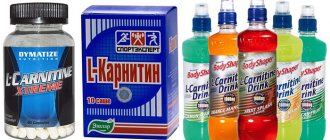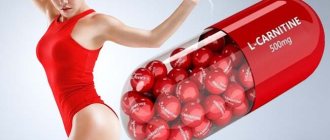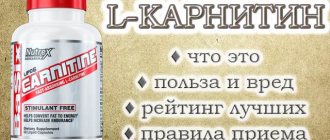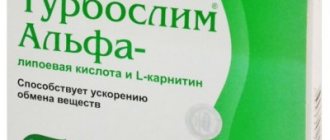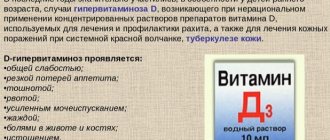L-carnitine, a vitamin as a single agent and as one of the ingredients in combination with various amino acids, energy drinks and phytoextracts, has today gained wide popularity in the market of dietary supplements. Among its consumers are people who want to lose weight or achieve the best athletic results, as well as those who take it for health purposes. Its use in medicine and sports will be discussed in this article, where we will try to answer the question: what beneficial properties of L-carnitine made it so popular, occupying the top positions of numerous ratings of sports nutrition and dietary supplements?
L-carnitine in its optimal natural form and dosage is found in beekeeping products - such as pollen, royal jelly and drone brood, which are part of many natural vitamin and mineral complexes: "Leveton P", "Elton P", "Leveton Forte" , “Elton Forte”, “Apitonus P”, “Osteomed”, “Osteo-Vit”, “Osteomed Forte”, “Eromax”, “Memo-Vit” and “Cardioton”. That is why we pay so much attention to each natural substance, talking about its importance and benefits for a healthy body.
Discovery of carnitine
More than a century has passed since the discovery of carnitine, and today its effects are well studied, although by no means completely. This substance was extracted almost simultaneously, in 1905, by the Moscow chemists V. Gulevich and R. Krimberg from muscle tissue and the German F. Kucher. Based on its source, the substance was called carnitine (from the Latin carnis, which means “meat”). Only two decades later it was possible to reveal the structure of the new compound. In the 50s, it was actively studied by A. Frenkel, who discovered that it is an essential nutrient, without which the growth of the larvae of Tenebriomolitor, a flour beetle, is impossible, from which it was concluded that L-carnitine as a growth factor belongs to the group of B vitamins. However, as It turned out later that for humans, unlike insects, it is not essential, that is, it is synthesized by the body itself, which means that it cannot be called a vitamin in the strict sense of the word. In 1958, its effect on fat oxidation was established, and in the 60s it was able to be synthesized in the laboratory. A lot of scientific publications have appeared revealing the role of L-carnitine in the human body and the prospects for its use. Since the 80s, widespread production and use of levocarnitine for therapeutic and sports purposes has become possible.
Side effects and possible interactions with other drugs
In most cases, the drug is well tolerated by all patients. Side effects are rare. These possible negative reactions can be avoided by following all the rules for taking this drug that were recommended by your doctor. A specialist will be able to select the optimal dose of this dietary supplement and determine the duration of its use.
In rare cases, L-carnitine has the following side effects:
- allergic reactions;
- abdominal pain;
- digestive disorders;
- muscle weakness (with uremia);
- discomfort when inserted into a muscle or vein.
When prescribing Levocarnitine, the possible interaction of this dietary supplement with other drugs must be taken into account:
- anabolic drugs enhance the effect of L-carnitine;
- lipoic acid enhances the effect of L-carnitine;
- glucocorticosteroids cause the accumulation of L-carnitine in tissues (except liver tissue).
You must inform your doctor about taking the medications described above.
What is L-carnitine from a biochemical point of view?
It is worth deciding what L-carnitine is, because there is some terminological confusion that can confuse you. So, this amino acid, also known as levocarnitine, is sometimes referred to as vitamin Bt or B11, but classifying it as a vitamin, as we have already found out, is an outdated point of view. Rather, in terms of its functions, it is an organic vitamin-like substance . It is also close to amino acids, but cannot be classified as one of them due to the absence of the NH2 amino group necessary for all amino acids.
It would not be a mistake to call it a metabolic agent , since it is involved in important metabolic processes, primarily lipid (fat) metabolism. Its most important mission in our body is the delivery of fatty acids to those parts of the cells where energy is produced for physical activity, and specifically in the mitochondria. So let’s boldly call it a vehicle . It is also true that it belongs to the group of coenzymes - compounds that seem to spur enzymatic reactions, because oxidative processes occur in mitochondria under the control of L-carnitine.
Consumers of dietary supplements often ask whether there is a difference between the concepts of “carnitine” and “L-carnitine”. Yes, there is a difference. Carnitine is the general name of a substance that has two forms, two optical isomers - L and D. Only the L-form of carnitine has beneficial properties for the human body, and only it is synthesized in the human body, and the D-form is antagonistic in action and harmful to it. So our story is dedicated only to levocarnitine – the L-isomer.
Pure L-carnitine is a colorless or whitish powder, the crystals of which easily absorb moisture from the air (hygroscopic) and quickly dissolve in water, which makes it possible to produce various types of preparations: syrups, ampoules and bottles of solution, capsules and tablets.
The effect of L-carnitine on the human body
Formed mainly in the liver and in smaller quantities in the kidneys and brain with the participation of a number of vitamins, amino acids lysine and methionine, iron and enzymes, levocarnitine is delivered by blood to various organs. The action of L-carnitinan in the human body is primarily to perform energy and metabolic tasks : it helps fatty acids penetrate mitochondria, which can be compared to cellular power plants. As a result of the oxidation of fat molecules in mitochondria, molecules of ATP, or adenosine triphosphate, are produced - the most important source of our physical activity and energy for internal biochemical interactions. At the same time, levocarnitine itself cannot be called a fat burner; it is a necessary transport link in this process, which means that the rate of burning fuel—fat—depends on its work. It is also involved in the purification of mitochondria and cytoplasm from residual energy generation products. A number of its properties and the effects it produces are associated with the main function of L-carnitine.
- The antihypoxic effect of levocarnitine is due to the fact that it enhances anaerobic, that is, without access to air, mechanisms of energy supply to the body by converting fat into ATP. As a result, less oxygen is consumed for energy needs, and tissues experience less oxygen starvation, which is why L-carnitine is successfully used in the fight against hypoxia.
- Carnitine protects blood vessels and the heart by reducing the level of so-called “bad cholesterol,” or scientifically, low-density lipoproteins, which are deposited on the inner walls of blood vessels, narrowing them and forming plaques that impede blood flow. The cardio- and vasoprotective effect of levocarnitine is also associated with the improvement of metabolic processes and nutrition of the heart muscle, as well as with the antioxidant activity of this substance.
- Experiments have repeatedly noted a significant anabolic effect from the use of L-carnitine, namely: along with a decrease in fat, athletes experienced an increase in muscle tissue. Scientists explain this by strengthening the secretory function of the stomach and increasing appetite, increasing the metabolism of phospholipids and digestion of proteins, as well as improving the transmission of nerves. impulses. At the same time, carnitine works as an anti-catabolic , preventing the destruction of protein molecules. By the way, it significantly reduces the consumption of carbohydrates for energy needs, helping to create glycogen reserves in the liver and muscles.
- With increased activity of the thyroid gland, causing hyperthyroidism, or thyrotoxicosis, this vitamin acts as an antagonist of the hormone thyroxine and helps normalize hormonal levels .
- As a neuroprotector, L-carnitine has proven itself by providing neurons (nerve cells) with energy, improving neurotransmission, maintaining metabolic processes and detoxifying substances that can disrupt them.
- Improving mental and physical performance , increasing overall tone and mood, and endurance directly depend on the role of carnitine in energy processes.
- Levocarnitine increases the blood’s ability to bind carbon dioxide, that is, it increases its alkaline reserve, therefore it helps fight acidosis - excess lactic acid (lactate) in the body, normalizing the acid-base balance .
- The detoxifying activity of carnitine manifests itself in neutralizing the effects of toxic organic acids and substances foreign to the body.
- Levocarnitine has a beneficial effect on male reproductive function , increasing the concentration and activity of sperm in the seminal fluid.
- The antioxidant, regenerating, anti-stress and adaptogenic properties are also known .
How is L-carnitine used in medicine?
The ability to optimize metabolism and energy metabolism, improve immunity and the body’s adaptation to different conditions, restore strength and enhance tissue nutrition - all these properties allow the use of L-carnitine in clinical practice:
- in cardiology : in case of cardiac pathologies (primarily heart attack), levocarnitine reduces their damaging effect, stops the area of tissue necrosis, reduces arrhythmia, and promotes the restoration of the myocardium and its functions. The fact is that the oxidation of fatty acids in mitochondria is the leading energy source of cardiac activity. And with ischemia, that is, a local circulatory disorder, the reserves of carnitine, a carrier of fatty acids, quickly dry up. Therefore, it is advisable to additionally introduce it into the body of patients, including to increase their resistance to physical stress. Levocarnitine also reduces the harmful effects of oxygen starvation on the heart that occurs during vascular spasms;
- in neurology : for strokes, neurodegenerative disorders, encephalopathy, disorders of cognitive processes (thinking, memory, perception), dementia, anorexia nervosa, head injuries L-carnitine can be used as a means of normalizing cerebral circulation, which helps nourish neurons and restore their functions;
- in pediatrics : L-carnitine is prescribed as a metabolic agent for infants in cases of hypoxia and trauma at birth; in case of prematurity, lagging children in physical development, malnutrition, low muscle tone, lack of appetite;
- in gastroenterology : in case of liver cirrhosis, it helps reduce the level of toxic ammonia in the body; for diseases of the pancreas to stimulate the production of gastric juice;
- in andrology : for the treatment of male infertility;
- carnitine is also prescribed to patients with kidney pathology who are on hemodialysis; people with metabolic abnormalities causing deficiency of this substance; elderly people to prevent the development of senile dementia; for effective recovery in the postoperative period and in a number of other cases.
Side effects
The main effect of the drug is aimed at accelerating metabolism. Therefore, taking it can cause a sharp increase in appetite.

In addition, you may experience:
- increased heart rate, increased blood pressure and body temperature;
- nervous overexcitement or unreasonable feelings of anxiety;
- rashes and other forms of allergic reactions, as well as gastrointestinal disorders.
An overdose is indicated by the appearance of a rotten fish odor from the body and mouth, nausea, vomiting and diarrhea.
Long-term use of the drug can clog the arteries and lead to cardiovascular disease.
How is L-carnitine useful for athletes and those wishing to lose weight?
Levocarnitine is especially popular as a sports nutrition product. Without being a doping and not being included in any register of substances prohibited in sports, L-carnitine is useful for athletes due to a number of properties:
- helps to gain muscle mass, promoting fat burning ; especially useful for dry drying the body, giving the effect of drawing the pattern of veins; is anabolic and catabolic at the same time;
- increases the athlete’s energy, as it promotes the production of ATP. Increases performance and endurance during both aerobic and anaerobic exercise;
- promotes recovery during the post-exertion period;
- protects the heart and blood vessels under high stress during intense physical activity; is an adaptogen, helping the athlete adapt to increasing loads;
- has antitoxic, antistress, antioxidant, antihypoxic effects , which is important when athletes are under extreme and simply high loads.
As part of bee pollen, levocarnitine is included in natural complex preparations for athletes and people leading an active lifestyle: “LevetonP”, “Elton P”, “Leveton Forte”, “Elton Forte”, “Apitonus P”, “Eromax”, etc.
In order to get rid of excess weight, simply taking L-carnitine is not enough; physical activity is also necessary, since this substance begins to work (burn fat) only when we perform active muscle work. It is this feature of levocarnitine that is associated with negative reviews about its supposed ineffectiveness. This is a means of losing weight for active and mobile people, as well as those who know how to control their appetite, because by increasing metabolism, it also increases the desire to eat. In this case, consuming fiber comes to the rescue, creating a satiating effect.
Advice from professionals
Marina Novanska, a nutritionist with 15 years of experience, gave her comment on l-carnitine for our article.
“The effect of taking L-carnitine will only be with active physical activity and proper nutrition. Doctors recommend eating frequently and in small portions. Under no circumstances should you give up foods containing protein, i.e. meat and dairy products. After active training, it is advisable not to eat for an hour. Then you can eat some protein product or drink a protein shake. It is important to understand that L-carnitine does not combine with low-calorie diets. A balanced diet and exercise are important here.”
In addition to the nutritionist’s comment, we selected several comments from the athletes themselves.
Angelina Nachalova about BioTech L-Carnitine 2000 Ampule
“Choose the right dosage. The effectiveness of this thing is significant if taken 20-25 minutes before training. You can forget about fatigue and work to the fullest. Convenient to use. Cool stuff!”
Irina Dinaeva about Scitec Nutrition ReStyle:
“In general, there are only advantages. I drink BCAAs along with amino acids and sometimes my trainer says to combine them with protein. I feel great. Capsules are designed for 2 per dose. Those. A jar lasts for a month. I usually take it 30 minutes before training. This improves the effectiveness of the training.”
When preparing the article, we used reviews about l-carnitines from here - https://f.ua/shop/zhiroszhigateli/20749-osnovnye-komponenty-vhodyaschie-v-sostav_l-karnitin Study as many reviews as possible. This will help you find out other people's experiences before purchasing a particular supplement.

Is it possible to have excess and deficiency of carnitine in the body?
Carnitine deficiency in the body can be associated with various pathologies in the heart, liver, kidneys, thyroid gland, as well as metabolic disorders, since in these cases its natural reserves are intensively spent, and their replenishment is difficult. Often, weakened, poorly nourished children suffer from a lack of this substance, since the full synthesis of their own carnitine is absent until about 15 years of age. At risk of developing carnitine deficiency are athletes and dieters, as well as vegetarians who do not consume foods rich in this compound (meat, fish, cottage cheese). Therefore, all these categories can be recommended to take it in the form of supplements. Its deficiency may be indicated by metabolic disorders, excess weight, muscle weakness and spasms, cardiovascular disorders, chronic fatigue, and weak immunity.
As for its excess in the body, scientists say that such a condition is impossible, since all excess, undigested carnitine is simply excreted from the body without any terrible consequences.
Daily norm of carnitine
The daily requirement of carnitine depends on age. Up to one year it is equal to 15 mg/day, from one to 3 years - 50, from 3 to 5 years - 90 mg, by adulthood it reaches 300 mg. Of course, in cases of use for therapeutic purposes, the individual dosage should be determined by the doctor. For sports purposes, the use of L-carnitine is guided by a dosage of 500 mg to 2 g / day in 2-3 doses. It is pointless to take a larger amount of this substance, since it will not be absorbed anyway. It is better to drink the supplement on an empty stomach and about half an hour before starting a workout.
Of the side effects of carnitine, only the possibility of allergic reactions and dyspeptic disorders is noted in case of individual intolerance.
Mode of application
The dosage and duration of taking L-carnitine are determined individually and depend on the patient’s age, diagnosis and those medications that are taken in parallel with this dietary supplement.
Syrup
L-carnitine syrup is intended for oral administration and can be taken regardless of meal time. It is advisable to take it undiluted.
Typically, the drug in syrup form is prescribed in the following doses:
- adults – 5 ml 3 times a day;
- athletes – 15 ml (one time) before training.
The duration of treatment is usually about 4-6 weeks. After a few weeks of break, the course of treatment can be repeated.
When prescribed to children, L-carnitine syrup is dosed depending on the age of the child:
- up to one year – daily dose 8-20 drops;
- 1-6 years – daily dose 20-28 drops;
- 6-12 years – daily dose 2.5 ml.
The daily dose should be divided into 2-3 doses. The duration of use is usually no more than 30 days. If necessary, the course of treatment can be repeated after several weeks.
Tablets and capsules
Available in different forms:
L-carnitine tablets and capsules are intended for oral administration. When taking them, they should not be chewed or divided. After swallowing, take them with a small amount of water. The dosage is determined individually.
Typically, the drug in the form of tablets or capsules is prescribed in the following doses:
- adults – 250-500 mg 2 or 3 times a day;
- athletes – 500-1500 mg (one-time dose) before training.
The duration of treatment is determined individually and in most cases is about 4-6 weeks. It is advisable that the course of treatment last no more than 6 months.
Due to the inconvenience of dosing, L-carnitine tablets or capsules are not prescribed to children.
Injection
L-carnitine for injection into a muscle or vein is available in the form of a 10% solution and is prescribed only in cases where the drug cannot be administered orally (for example, with injuries to the digestive organs or oral cavity) or in acute periods of severe illness. Immediately before administration, every 100 mg of the drug (i.e. 1 ml of a 10% solution) is diluted in 50 ml of a 0.9% sodium chloride solution (for injection into a muscle or into a vein) or 5% glucose solution (for injection into a vein). When administered into a vein, the drug can be administered slowly as a stream (over 2-3 minutes) or as a drip (no more than 60 drops per minute). L-carnitine injections may be accompanied by discomfort or damage to blood vessels or soft tissues.
The dosage of the drug is determined strictly individually. Typically, parenteral administration of L-carnitine is prescribed in the following doses:
- hemodialysis – 2 g once after the procedure;
- cardiogenic shock – 3-5 g per day (the dose is divided into 2-3 doses), administered until the patient recovers from the shock state, after which oral administration of the drug is prescribed;
- myocardial infarction or acute heart failure – 3-5 g per day (the dose is divided into 2-3 doses) in the first 3 days, then the dose is reduced by 2 times;
- acute cerebrovascular accidents – 1 g in the first 3 days, 0.5 g in the next 7 days, after 10 days the course of treatment is repeated for 3-5 days;
- L-carnitine deficiency, subacute or recovery period after a stroke, dyscirculatory encephalopathy and other brain lesions - 0.5-1 g per day intravenously or 2-3 times a day intramuscularly for 3-7 days, if necessary, the course can be repeated after 2 weeks.
L-carnitine in food
Considering that the body independently produces only about 25% of the levocarnitine we need, and we must receive the remaining 75% from the outside, knowledge about the content of L-carnitine in food products will not be superfluous. The main source of this substance is meat food. Depending on the preparation, that is, the degree of heat treatment, it is present in the following quantities: beef - 40-50 mg/100 g, pork - 12-25 mg, rabbit - 20-25 mg, turkey - 13-15 mg, chicken - 8–10 mg. Various types of fish and seafood are also rich in carnitine: crayfish – 15 mg/100 g, salted herring – 4 mg, perch – 5 mg, canned tuna – 3 mg, boiled mussels – 3 mg. If you do not eat animals, but consume dairy products, you can also replenish your internal reserves of carnitine, as it is contained in: milk - 3.5–4 mg/100 g, cream - 3.5 mg, condensed milk - up to 10 mg, cottage cheese – up to 3 mg, yogurt – up to 4 mg. There is very little of it in products of plant origin: vegetables - no more than 1 mg, nuts - 0.05-0.08 mg/100 g, fruits - only 0.002-0.006 mg. True, mushrooms containing up to 4 mg/100 g L-carnitine come to the aid of vegetarians. So the recommendations for vegans to take additional L-carnitine are quite justified. In general, diversify your menu, and if necessary, do not neglect dietary supplements and be healthy!
